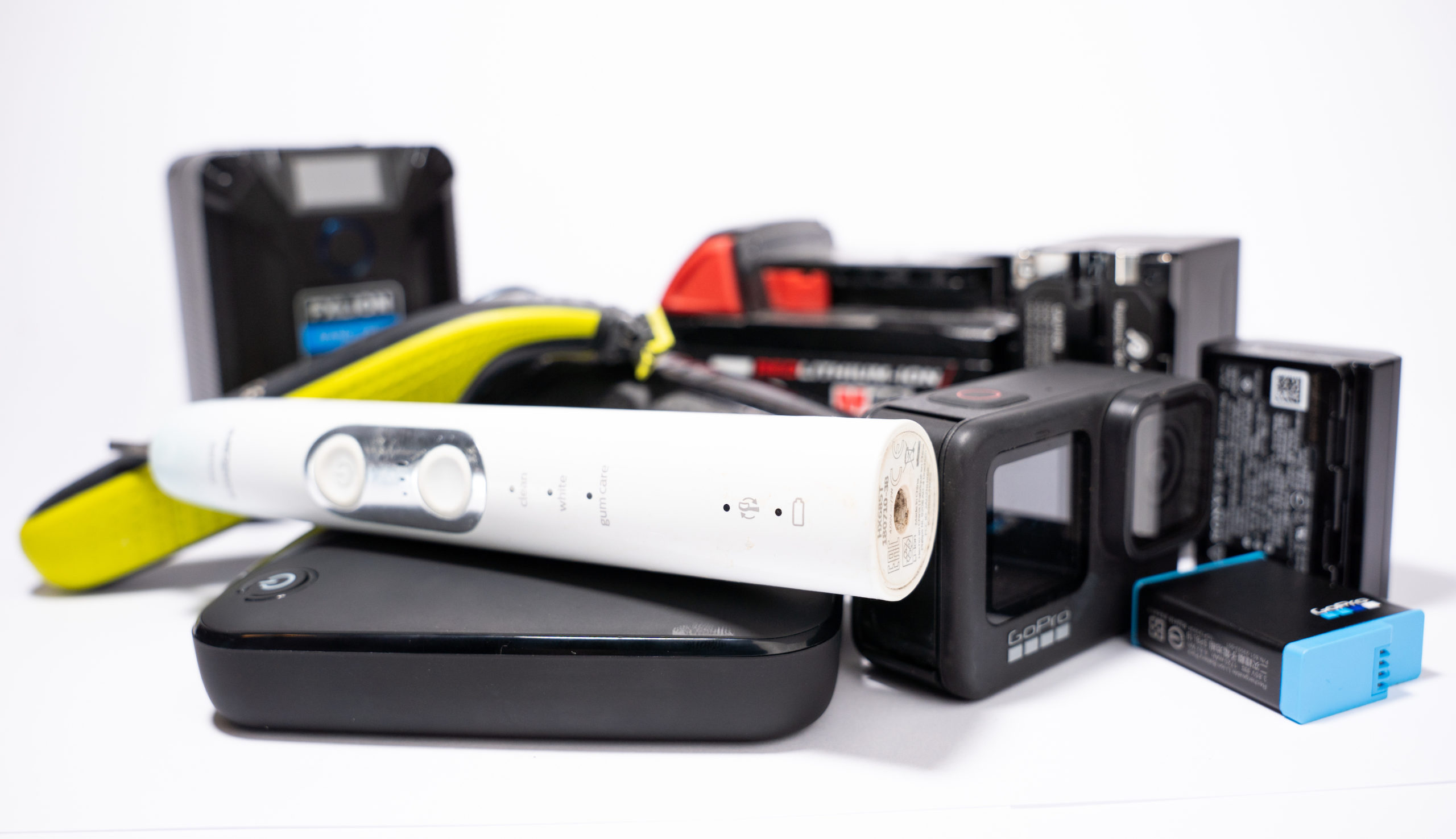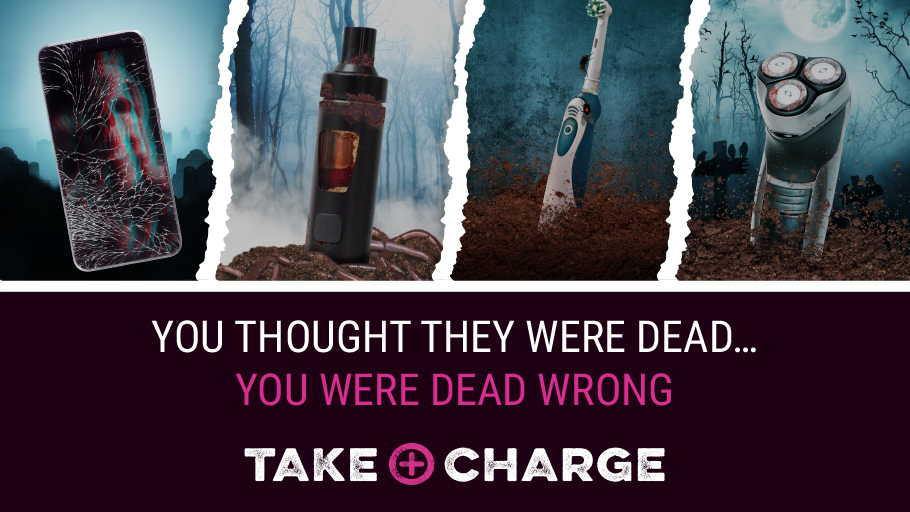First launched in 2020, the Halloween-themed campaign urges consumers to recycle batteries and electronic devices containing batteries using only specialist recycling services (see letsrecycle.com story).
It also reminds the public never to throw “zombie batteries” away alongside residual waste or other recycling by drawing attention to the fire risk.
Just 40% of local authorities currently offer kerbside battery collections, the ESA says, while the current recycling rate for batteries is around 45% of all batteries placed on the market.
Jacob Hayler, the ESA’s executive director, said: “We urge everyone to please recycle batteries and electronic devices responsibly and help us stop waste batteries from becoming zombies.”
The campaign provides a range of visual content which the ESA, the trade body for the private waste sector, encourages stakeholders across the waste industry to share on their social media.
The campaign runs until 7 November, after which a range of non-Halloween content will be made available for use in perpetuity. This includes items such as signage for household waste recycling centres, bin-hangers and posters.
The ESA has also produced a short film showing zombie batteries “wreak havoc” at recycling and waste facilities to support the campaign. This can be seen below.
Lithium-ion batteries
The ESA warns that higher-powered lithium-ion batteries, which are used across a range of household devices from phones and laptops, present a particular risk.

A report published by environmental consultancy Eunomia in 2021 concluded that lithium-ion batteries start nearly 50% of all recycling and waste fires in the UK. The total cost of these fires was said to exceed £150 million each year.
Eunomia estimated that batteries cause just more than 200 fires at UK recycling and waste management facilities each year, but the ESA now believes this is “likely to be an underestimate”.
Informal reporting suggests the annual number of battery fires could be three times higher than Eunomia’s estimates, the ESA says.
Mr Hayler added: “Since we first launched Take Charge in 2020, the number of battery fires at recycling and waste facilities unfortunately seems to have risen considerably and is affecting all operators in the sector, not helped by the tinder-dry conditions caused by the heatwave this summer.
“These fires not only put lives at risk, but also seriously threaten vital infrastructure upon which all of us across the UK rely on every day.”
Support
The campaign has support from across the waste sector. Commenting on the campaign’s launch, Mark Andrews, the National Fire Chief Council’s waste lead, said: “We encourage people to Take Charge and correctly recycle batteries and electronic devices in specialist recycling services.
We encourage people to Take Charge and correctly recycle batteries and electronic devices in specialist recycling services
“This could significantly reduce the increasing number of challenging fires that fire and rescue services have to deal with. These can often be large-scale incidents which disrupt local communities and pose a risk to life, but they can be prevented.”
Sam Horne is chair of the National Association of Waste Disposal Officers, which represents local councils. He said: “We support this essential campaign that encourages residents to dispose of batteries via appropriate routes.”
Battery compliance scheme Ecosurety is sponsoring the campaign. “Following on our long-standing commitment to increase recycling, it was important for Ecosurety to get behind this campaign and drive up the public awareness of the growing lithium batteries fires issue to nudge consumers to dispose of batteries and small electrical devices safely,” Stephanie Housty, marketing and sustainability manager at Ecosurety, said.
Campaigns
The ESA is not the only organisation to launch a public campaign aimed at tackling battery fires in recent times.
In July, compliance scheme REPIC launched an initiative aimed at reducing the risk of fires at HWRCs and treatment plants (see letsrecycle.com story). REPIC’s campaign sees battery collection drums and safety message posters installed at almost 400 local authority HWRCs with which the compliance scheme is partners.
And, a few weeks later, Material Focus launched a public-facing campaign of its own to raise awareness of the actions householders could take to tackle battery fires.









Subscribe for free